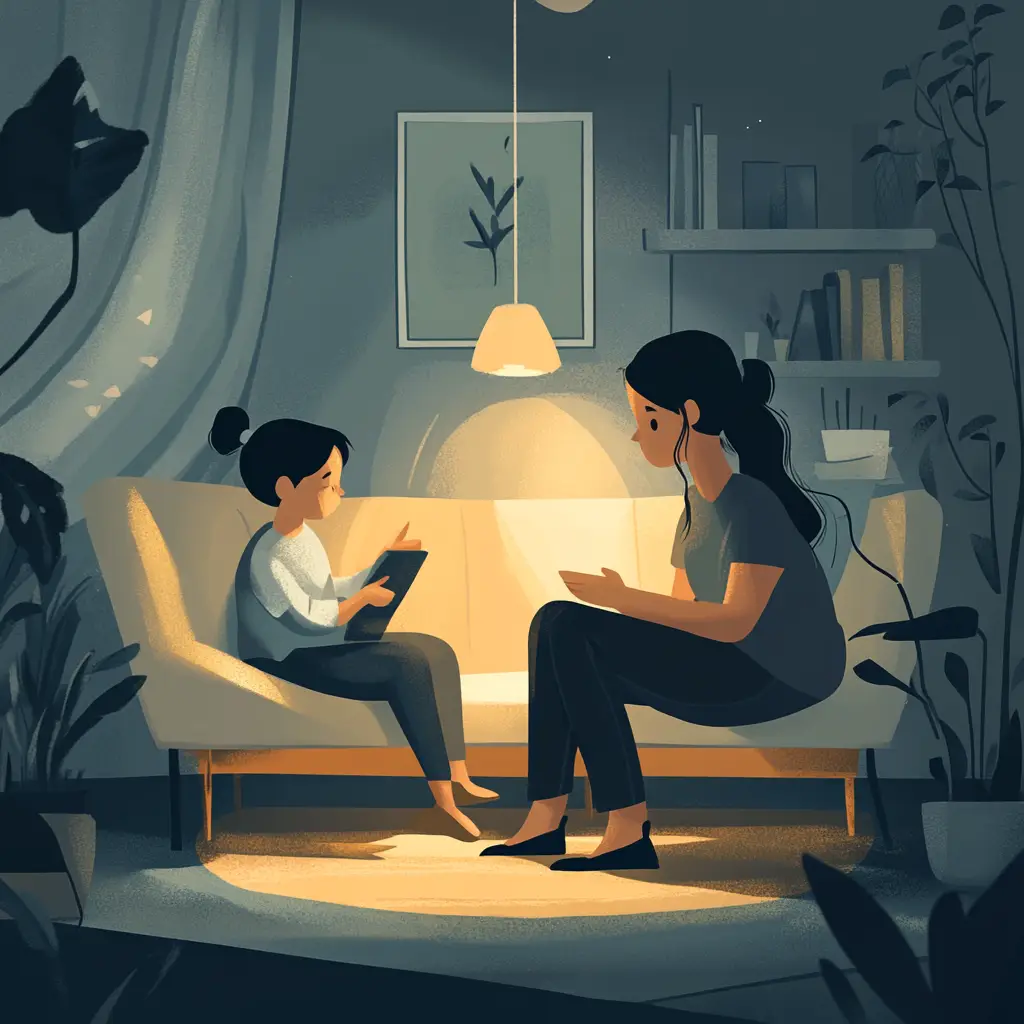Introduction
Anxiety in children is a natural response to stressful situations, often accompanied by feelings of worry and fear. However, when anxiety becomes a constant companion, it can negatively impact a child’s development and overall well-being. In this article, we will discuss how parents can help their child cope with anxiety using scientifically-based methods.
What is Anxiety in Children?
Anxiety is a state characterized by excessive worry about the future, which can manifest both physically and emotionally. Children may experience anxiety in response to specific triggers, such as changes in routine, family conflicts, or school problems. It’s important to understand that a certain level of anxiety is normal and even beneficial, as it helps children prepare for new challenges. However, chronic anxiety can lead to various problems, including sleep disturbances, declining academic performance, and social withdrawal.
Signs of Anxiety in a Child
Before helping a child, it’s crucial to recognize the signs of anxiety. Here are some of them:
- Frequent complaints of headaches or stomachaches.
- Avoiding certain situations or places.
- Irritability and frequent mood swings.
- Difficulty concentrating and completing tasks.
- Sleep disturbances, nightmares.
- Constantly seeking reassurance about their fears (e.g., “Will everything really be okay?”).
Methods to Help Your Child
- Talk About Feelings: Create a safe and supportive environment where your child can openly discuss their feelings. Talking about fears and worries helps reduce their intensity.
- Teach Relaxation Techniques: Simple deep breathing exercises or meditation can help your child learn to control their state during moments of anxiety.
- Establish a Clear Routine: Structure helps children feel more confident and reduces anxiety levels. Regular activities, sleep, and playtime should be scheduled and followed.
- Limit Exposure to Stressful Factors: Try to minimize exposure to negative information, whether it’s news or stressful adult conversations. Protect your child from excessive information noise.
- Encourage Physical Activity: Regular physical exercise helps reduce stress levels and improves overall well-being.
- Consider Professional Help: If your child’s anxiety becomes too intense and interferes with their daily life, seek the help of a psychologist or therapist.
When to Seek Professional Help?
If your child’s anxiety is frequent and interferes with their normal life, such as refusing to go to school or avoiding social interactions, it’s important to seek professional help. Early intervention can prevent more serious problems in the future.
Conclusion
Helping your child cope with anxiety is a vital task for any parent. By using simple yet effective methods, you can significantly alleviate your child’s condition and help them deal with their inner fears. Remember, your attention and support are key elements in this process.

